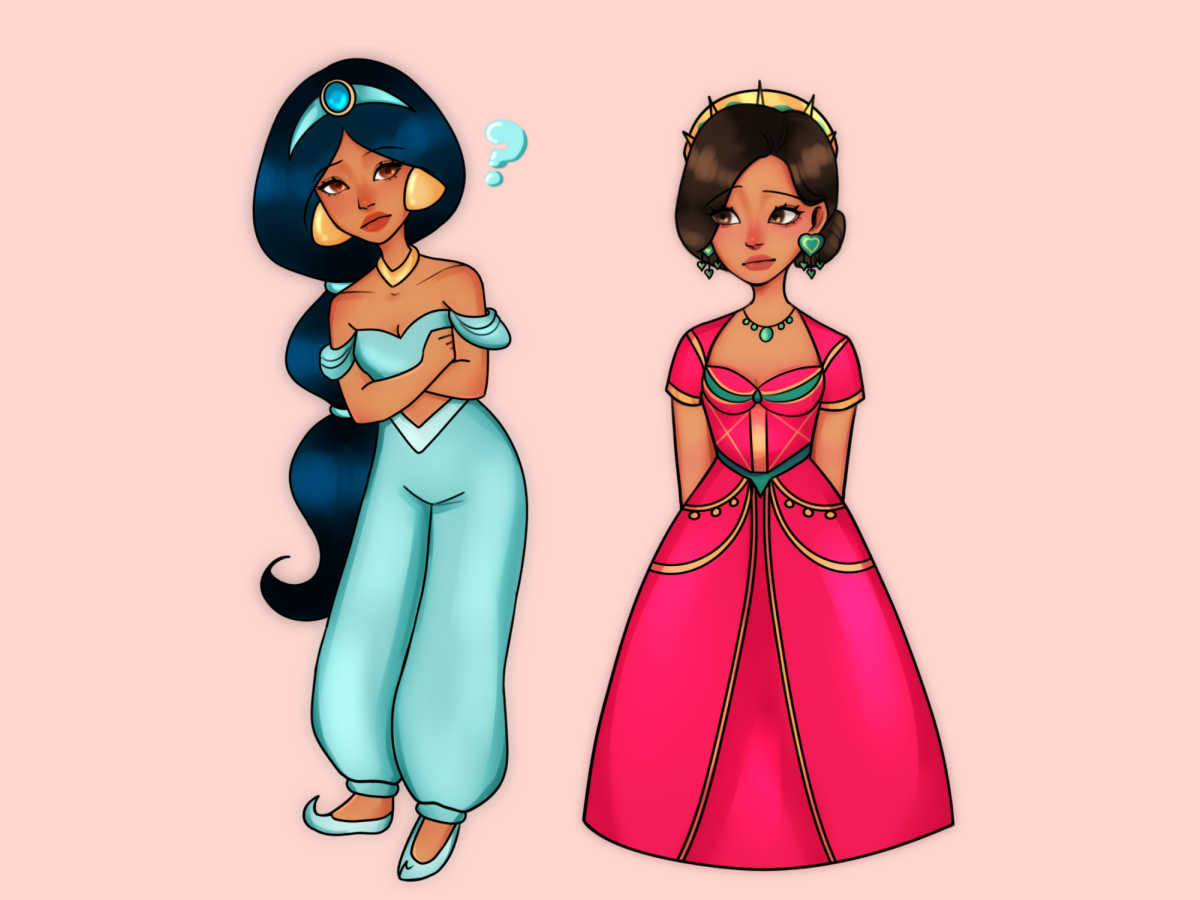It’s a cozy Saturday evening, and the television screen casts a luminous glow over the room. As the screen comes to life and a familiar soundtrack of the Lion King begins to play, I expect to feel a tug of childhood nostalgia.
But this soundtrack is revised, and the movie remake in front of me is simply a reminder of the recent flood of Disney live-action remakes. I can’t help but wonder if that original, nostalgic enchantment will ever be restored within me.
I was initially excited and curious when hearing about Disney’s live-action remakes since I grew up regularly watching Disney movies and hold many of the characters close to my heart. But upon further consideration, I do believe Disney deserves the backlash it has been receiving. From casting controversies to concerns about cultural representation and originality, Disney’s recent adaptations of beloved animated classics have failed to capture the hearts of longtime fans and new generations.
Specifically, Disney has a habit of casting actors whose ethnicity doesn’t match the character they are portraying in films that strongly emphasize identity and culture. There is a message being sent when characters of a one ethnicity or culture are consistently cast incorrectly, especially if they are being casted as half-white.
When actors are cast inaccurately or in roles that do not align with their cultural background, it reinforces the idea that ethnicities are interchangeable and undermines each’s unique experiences and perspectives. Moreover, casting characters as half-white implies a character’s worth or appeal is somehow enhanced by their adjacency to whiteness, almost diluting them to fit a specific, Western mold.
For example, though I enjoyed the live-action remake of “Aladdin,” there were controversial casting choices for various characters. Half-white Anglo Indian actress Naomi Scott played Princess Jasmine, a decision which received heavy criticism since Scott didn’t originate from an Arabic or Middle Eastern background. Also, the live adaptation added a new, white male character to the cast, played by “Into the Woods” Billy Magnussen, whose character only seemed to fuel unnecessarily xenophobic ideas.
The 2019 “The Lion King” remake, which received criticism for the lack of expressiveness in the CGI-rendered animals, felt a lot like a waste of time and money. The entire film felt like a money grab, as there were no new ideas or concepts that made this remake stand out from the original. Instead, those resources could have gone towards producing a new, original movie to attract a wide range of viewers. The animation of the different animals is what initially drew me in as a child and was what made the original film charming and fun.
Or take the 2020 “Mulan” live-action movie, another remake with significant changes made to the original story. I was disappointed by the removal of beloved characters like Mushu and Cri-Kee and classic songs such as “Reflection” and “I’ll Make a Man Out of You” that made the movie memorable. Disney attempted to fill these gaps with unnecessary, confusing new characters and concepts like witches and dark magic, but that only further erased the original charm of the animated film.
Though this remake claimed to be a more authentic adaptation of “Mulan,” originally released in 1998, it had a white director, a white costume designer and four white screenwriters. It would have made more sense for Disney to hire a Chinese crew to run the movie, and at the bare minimum, a single Chinese writer to support the updated script. Instead, they ended up disrespecting Chinese culture.
Although Disney is increasing diversity in its plot and characters with movies like “Encanto” and “Turning Red,” there is no point in including multiple cultures if they are portrayed incorrectly. Oftentimes, misrepresentation can be more harmful than no representation at all.
Recently, Disney announced a “Snow White” live-action remake is in the works, and though I was mildly interested at best, actress Rachel Zegler, cast to play Snow White, made controversial comments. People accused Zegler of hating Snow White and having a pseudo-feminist take on the original animation. In addition, people have also expressed exhaustion with Disney’s shallow brand of “girlboss feminism,” arguing that not every princess has to be a hero or leader in order to be a good role model, to which I agree.
As a child, I grew up watching and cherishing these classic Disney movies, and it is disheartening to see how these movies have been butchered into money-grab remakes.
In the future, Disney’s live-action remakes should focus on striking a careful balance between tradition and restructure. While casting choices should consider talent and suitability for the roles, diversity and accuracy should be a top priority. Cultural representation should be handled with sensitivity and respect, avoiding stereotypes and oversimplification. Moreover, remakes should offer a fresh perspective or innovative take on the original.




